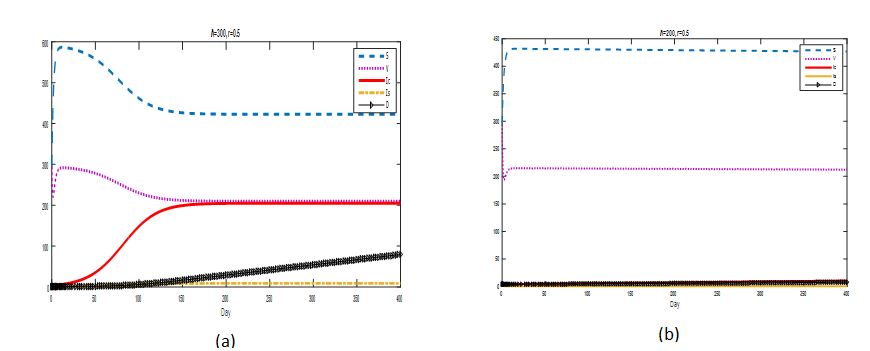
COVID-19 Vaccine won't stop the pandemic on its own...
The Near East University DESAM Institute Mathematical Modeling Research Group found out that the possible development of the COVID-19 vaccine will be effective on the coronavirus disease, but the vaccine alone will not be sufficient to end the epidemic.
DESAM Institute Mathematical Modeling Research Group researchers Prof. Dr. Evren Hınçal, Prof. Dr. Tamer Şanlıdağ, Assist. Prof. Dr. Bilgen Kaymakamzade and Nezihal Gökbulut published their COVID-19 vaccine dynamics study, prepared by SVIR type mathematical modeling. In the research, it is evaluated how effective a vaccine to be developed can play in stopping the epidemic. According to the results of the research, a vaccine to be developed against SARS-CoV-2 will reduce the number of coronavirus cases to a certain rate, but will not be able to erase it. In this context, the vaccine that is likely to be developed will not be enough alone to control the epidemic.
Calculations based on the 50 countries where the disease is most prevalent and covering approximately 6 billion people were made assuming that only susceptible individuals were vaccinated. The calculations made with the SVIR model were carried out in five categories as susceptible persons, vaccinated, mildly contaminated, severely contaminated and recovered individuals. While making calculations covering 75% of the world population, the use of masks, hygiene rules, compliance with social distance rules and restriction of circulation were taken into account.

The impact of vaccination and COVID 19 measures on the pandemic examined...
In the study conducted to examine the rate of transmission of the virus in the case of vaccine application, it was assumed that 20% (Figure 1a, 1b) and 50% (Figure 2a, 2b) of the population were vaccinated. It has been reported that if 20% of the population is vaccinated, even if the basic precautions and measures are followed, the number of people susceptible to the disease will increase and the disease will continue to spread accordingly.

It was determined that if 50% of individuals susceptible to the disease were vaccinated, the disease could be brought under control in a short time by following the basic measures and restrictions (Figure 2b). As a result, it was concluded that the vaccine expected to be developed against COVID-19 would be effective on the disease, but would not stop the pandemic on its own. In the research, it was emphasized that in addition to adequate vaccination, protective measures should continue in order to overcome the pandemic.
Assist. Prof. Dr. Bilgen Kaymakamzade: "The vaccine is mot enough to stop the pandemic by itself..."
One of the researchers of the DESAM Institute Mathematical Modeling Research Group, Assist. Prof. Dr. Bilgen Kaymakamzade reminded that the current search for the most popular solution to end the COVID-19 epidemic, which has badly affected the world in terms of both health and economy, is vaccination. However, Kaymakamzade said that even if a vaccine that is likely to be developed against the disease is applied to 50% of the society, it cannot provide full protection against the virus alone.
Stating that the vaccine demand against COVID-19 has increased day by day due to the strong effect of vaccination in many pandemics in the past, Assist. Prof. Dr. Bilgen Kaymakamzade said that in the COVID-19 vaccine dynamics study, they determined that even if a possible vaccine is developed, the infectious rate of the virus can only decrease with the simultaneous continuation of protective measures. Stating that the vaccine will not make a big difference in daily life, Kaymakamzade said "We must comply with the rules of hygiene and social distance required in our daily lives to keep ourselves and others safe until the SARS-Cov-2, which causes coronavirus disease, is completely inactivated".